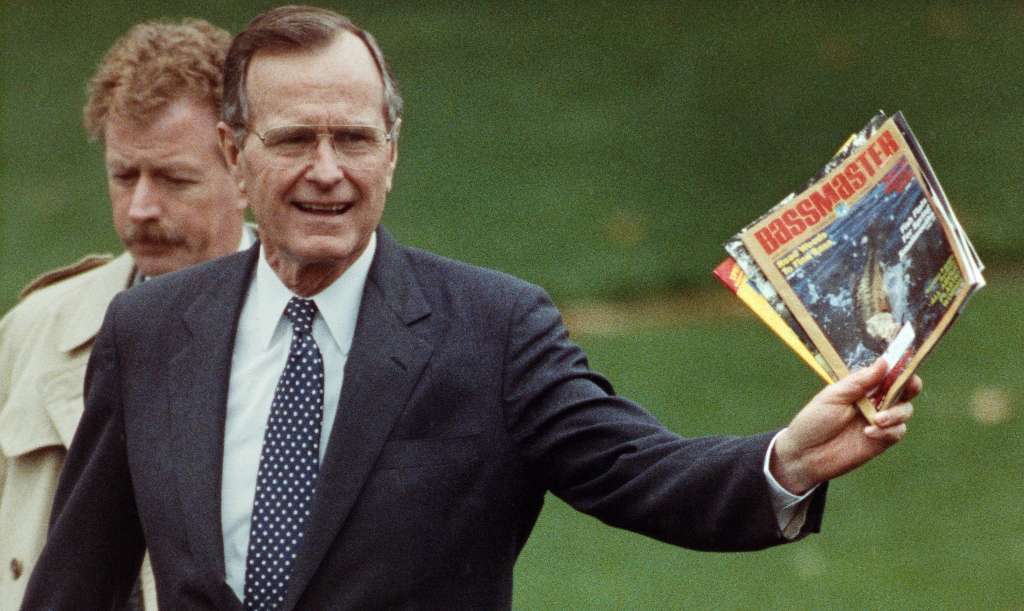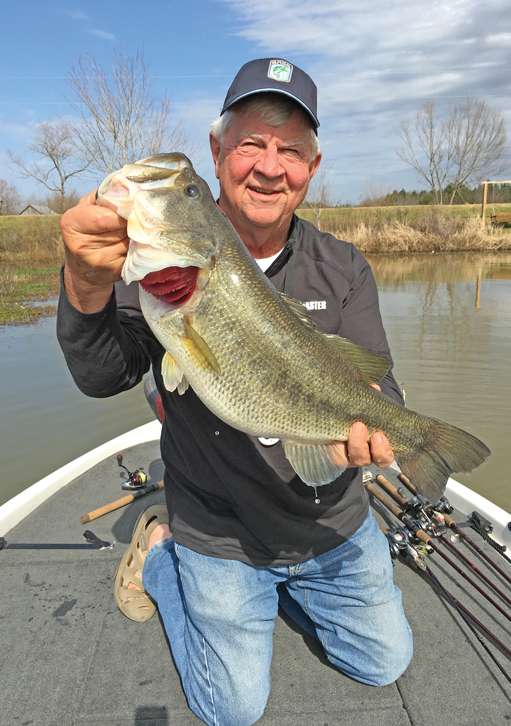
“Bush used Teddy Roosevelt’s ‘bully pulpit’ to promote sportfishing and the protection of aquatic resources.”
Numerous tributes were published in the outdoor media following the passing of President George H.W. Bush on November 30. Some lauded him for pushing through the Wallop-Breaux amendment, which provides $650 million a year to the states for sportfish restoration. Others praised him for the Clean Air Act and other environmental contributions.
I won’t replow that ground, but I’d like to reminisce about a turn of events that shaped Bush’s views on outdoor recreation, especially fishing.
In the spring of 1979, a few months after I had moved from Houston to work in Ray Scott’s young B.A.S.S. organization in Montgomery, Ala., Scott asked me what I knew about Bush.
I only knew him by reputation. He was considered a good, ethical man … a dedicated public servant … a two-term congressman who failed in two attempts for the Senate … ambassador to the United Nations … CIA director.
“I’ve been invited to meet him,” Scott told me. “Why don’t you come along?”
The next day, Scott and I were ushered into a hotel meeting room for what was to be a 10-minute meet-and-greet with Bush, who was considering running for president. Scott had me hide a small tape recorder in my blazer pocket for the meeting. If I had replayed the tape after we left the meeting 45 minutes later, I would have heard mainly Scott talking. Bush could barely get a word in as Scott sold him on the importance of bass fishing to American culture and campaigned for the expansion of the federal Sport Fish Restoration Program.
But Bush saw some things in Scott that he liked, and then and there began a nearly 40-year friendship between the two men.
The day after that meeting, a Bush campaign official asked me to help persuade Scott to become Bush’s Alabama state campaign chairman.
Reluctant at first, Scott soon joined the campaign trail with all the fervor he had when he launched the world’s first bass tournament trail.
For his part, Bush clearly enjoyed spending time with Scott, staying overnight in Scott’s home in Montgomery and fishing the little lake on which it sat. Scott prevailed on the candidate to trade his business suits for open-collar shirts and posed with bass, a bird dog and trophy deer for publicity photos.
Scott couldn’t help Bush outpoll Ronald Reagan in the Republican primaries. But according to some reports, he did organize such a boisterous demonstration for Bush at the Republican National Convention that year that Reagan was inspired to tap Bush as his running mate.
As vice president, Bush delivered on his commitments to support sportfishing when he helped push through the Wallop-Breaux Amendment to the Sport Fish Restoration Act. That legislation, which Scott worked tirelessly to get approved, was circling the drain until Bush got involved.
After he succeeded Reagan as president, Bush used Teddy Roosevelt’s “bully pulpit” to promote sportfishing and the protection of aquatic resources. He loved reading Bassmaster Magazine and was proud to have been inducted into the Bass Fishing Hall of Fame.
I liked him for that. But I most admired him for trying to make America a “kinder, gentler nation.” We could use some of that right now.

